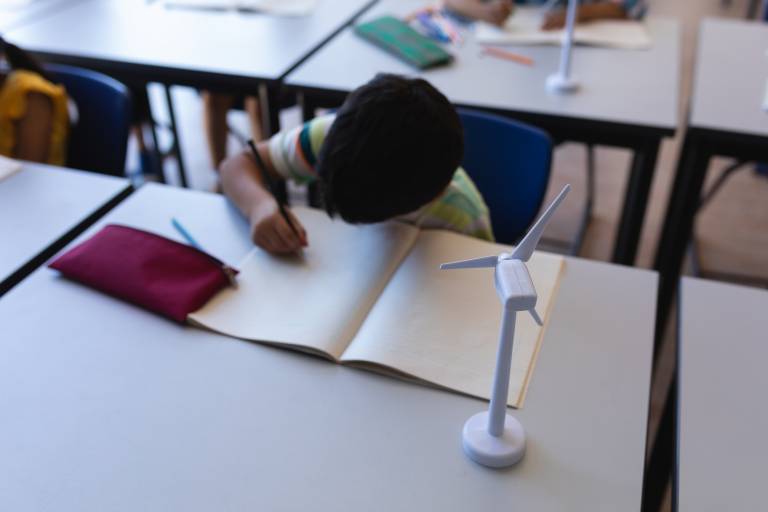Teacher training programme promotes sustainable futures across school subjects
A project within the PGCE (teacher-training) programme at UCL's Institute of Education is promoting sustainability across the secondary school curriculum by developing teachers’ knowledge and skills.

17 August 2022
To encourage and empower young people to participate in addressing the big sustainability challenges facing the world today, teachers need to be equipped to cover topics such as climate change in their teaching. Every school subject is relevant to this, each contributing distinctively to the knowledge, skills and values needed to participate.
“There is an urgent need for education to address global crises of sustainability,” explains Dr David Mitchell (UCL Institute of Education, IOE), who is exploring ways to address the issue. “In a recent national survey, a majority of teachers said that they felt unconfident teaching about climate change, while young people place climate change and sustainability high in their priorities of their concerns for the future.”
UNESCO’s International Commission on the Futures of Education calls for rapid educational innovation to support delivery of the SDGs. To help deliver more innovative teaching and give young people access to knowledge relating to sustainable development, a team led by Dr Mitchell devised a cross-subject approach to curriculum development, using a model developed as part of the UCL-led geography education project GeoCapabilities.
GeoCapabilities provides training materials for geography teachers to apply and adapt in the classroom, allowing them to explore their role as curriculum leaders for their subject and the importance of geography as ‘powerful disciplinary knowledge’. The approach has now been piloted across 18 subjects with a cohort of students taking the IOE’s Postgraduate Certificate in Education (PGCE). These subjects include art, music, English, the humanities, citizenship, modern foreign languages, maths, computing, the sciences and business studies.
““There is an urgent need for education to address global crises of sustainability,” explains Dr David Mitchell (UCL Institute of Education, IOE), who is exploring ways to address the issue. “In a recent national survey, a majority of teachers said that they felt unconfident to teach about climate change, while young people place climate change and sustainability as a high priority they want to address.”
The student teachers focused on aspects of the Anthropocene – the period of time during which humans have changed the planet – and worked both in their own subject and with colleagues in other subjects, sharing and comparing ways of teaching for sustainability.
At the end of the placements, the PGCE students wrote summaries that reflected on their experiences. For example: some of the religious education student teachers identified how indigenous beliefs and concepts of stewardship connected with environmental protection; some modern foreign languages teachers identified cultural awareness constantly reminding students that we are part of a bigger world; and some English student teachers considered dystopian fiction as linking well with teaching about climate activism. At the end of placements, the whole cohort of 600 PGCE students came together at a one-day workshop to share ideas on how to include sustainability in their teaching.
Following the pilot project, Dr Mitchell is joining the team of UCL’s Centre for Climate Change & Sustainability Education. He is helping to develop a new training programme for teachers, initially in geography and history, later to be extended across subjects and schools.
“Students have enjoyed coming together to talk to others from different subjects,” enthuses Dr Mitchell. “The discussions have led to valuable insights and practical ideas that we can all build on. The next step is for us to roll out the programme and get leverage in schools.”
 Close
Close


